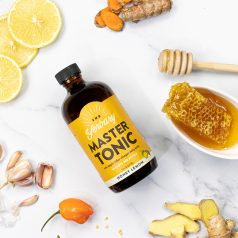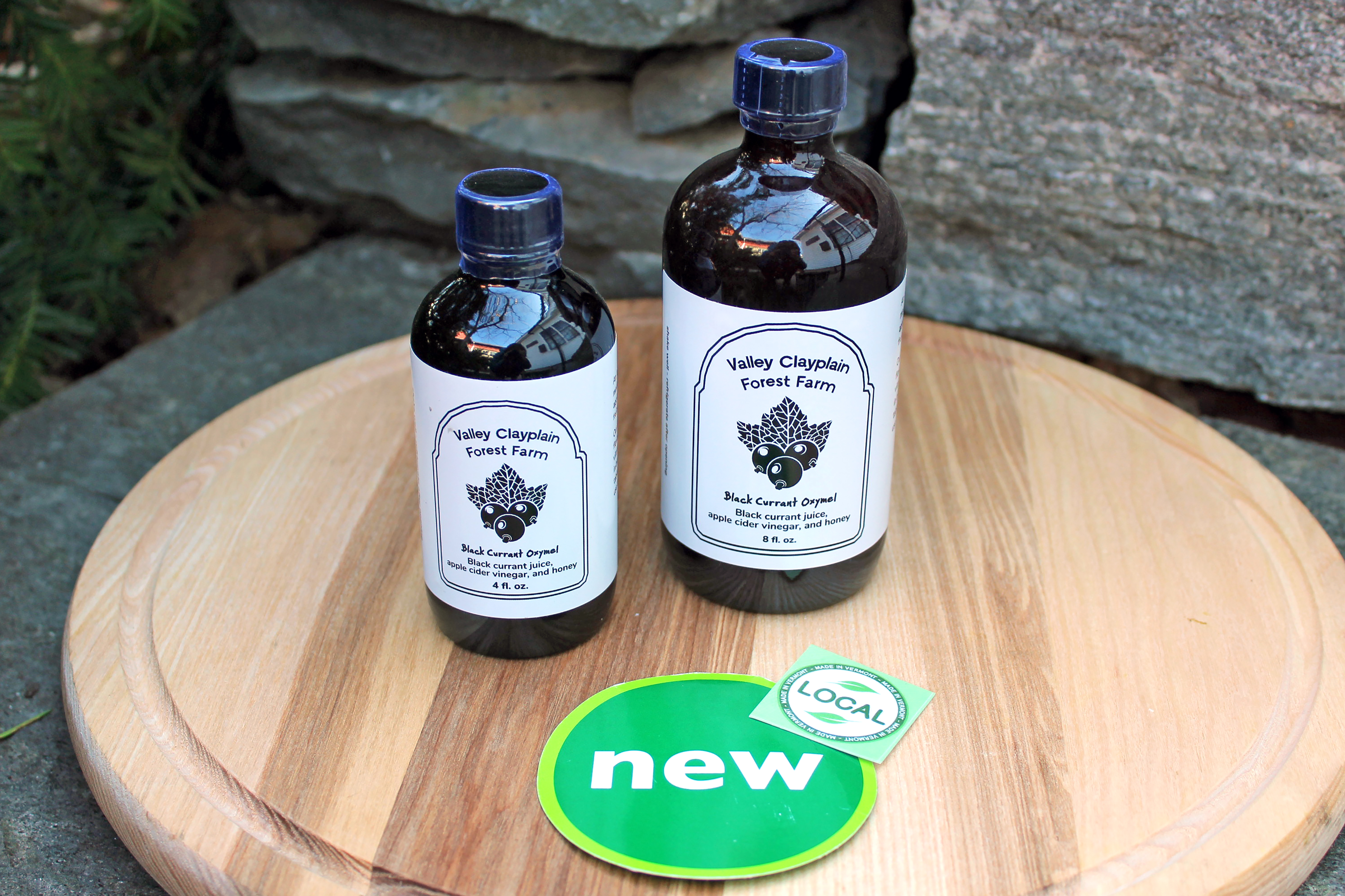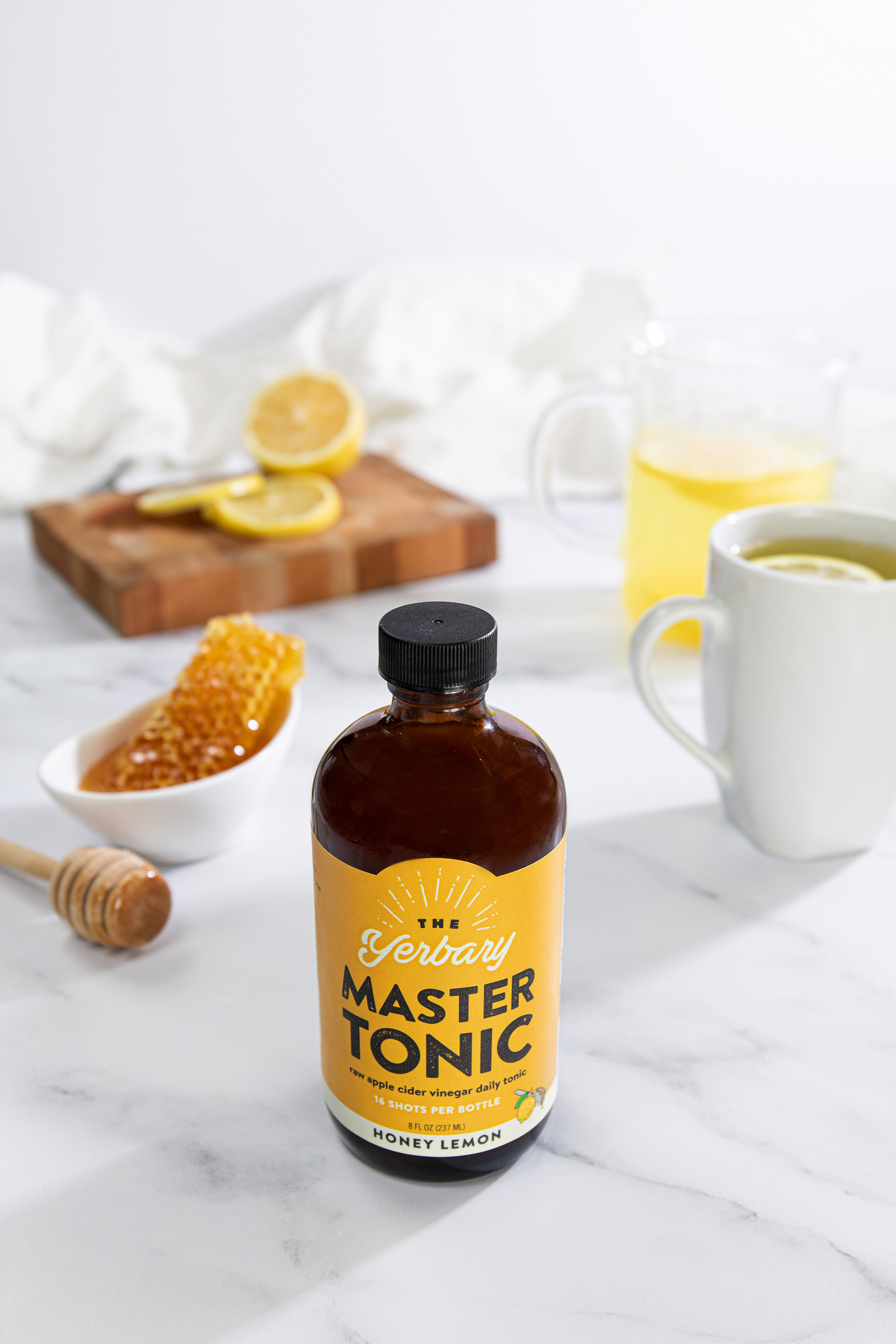
Wellness Wonders: Oxymels
What is an oxymel?
The term oxymel comes from the Greek word oxymeli, which translates to “acid and honey” and generally refers to an herbal extraction of vinegar and raw honey. While some traditional oxymel recipes have as much as a 5 to 1 ratio of honey to vinegar, most modern oxymel recipes call for an equal balance of the two. The vinegar most often used in oxymels is raw, unfiltered apple cider vinegar, which boasts a host of healthful properties on its own. Bringing together the probiotic qualities of raw apple cider vinegar with the beneficial enzymes of raw honey is a fantastic way to get the benefits of both, while also extracting and ingesting supportive herbs, particularly pungent ones that aren’t always pleasant to take on their own. One very popular example of an oxymel that you may be familiar with is fire cider, which was popularized by the esteemed herbalist (and Vermonter) Rosemary Gladstar.
What health benefits do oxymels offer?
According to a recent Mountain Rose Herbs blog post on the topic of oxymels, both apple cider vinegar and honey have been used for millennia to help boost the immune system, soothe dry throats, and temper digestive issues. Organic apple cider vinegar is high in acetic acid, and when you use the raw, unfiltered version, you are also getting “mother” strands of proteins, enzymes, and beneficial bacteria (similar to what one might enjoy in kombucha). Meanwhile, the honey brings soothing qualities and provides germ-fighting properties. So, these two ingredients alone are beneficial to the body, and when you add herbs, you have an incredibly effective method of getting extra herbal support as well.
Does the Co-op carry oxymels?
The Co-op is proud to offer a local oxymel from our friends at Valley Clayplain Forest Farm. Mark and Ammy make this potent herbal preparation with raw apple cider vinegar, local honey, and juice pressed from fruits grown right on their farm in New Haven. Their Black Currant Oxymel features the tart, yet sweet flavor of this potent superfood that has four times the Vitamin C of an equivalent amount of oranges and double the antioxidants found in blueberries. They suggest taking it by the tablespoon, diluting it with water for a refreshing fruit drink, using it as a marinade, combining it with oil to make a salad dressing, or pouring it over yogurt or pancakes.

We carry another fantastic local oxymel called Honey Lemon Master Tonic from our friends at The Yerbary in Charlotte, Vermont. This powerful herbal ally is a traditional fire cider made with organic apple cider vinegar, organic onion, organic garlic, organic ginger, organic horseradish root, organic lemon, organic raw honey, organic turmeric, organic habanero pepper. The Yerbary founder Michaela Grubbs says that this tonic will keep your systems resilient and boost your body’s defenses in a powerful yet sweet way!

Want to try making an oxymel at home?
Making your own oxymel may be much easier than you think. Some common dried herbs that make great oxymels include dandelion, elderberries, lemon balm, nettle, tulsi, rosehips, turmeric, basil, thyme, oregano, and rosemary. Check out this recipe from Mountain Rose Herbs for making an oxymel with some of your favorite dried healing herbs:
- Fill a pint jar 1/4 full of your choice of herbs.
- Cover with equal parts apple cider vinegar and honey to fill jar.
- Stir to incorporate.
- Wipe any liquid off the rim and top with a tight-fitting plastic lid. Alternatively, place a piece of parchment paper under a metal canning lid and ring to keep the vinegar from touching the metal.
- Shake jar until thoroughly mixed.
- Store jar in a cool, dark place to extract for two weeks. Shake jar at least twice a week to assist in extraction.
- Strain out herbs through a fine mesh strainer, pressing down on the herbs to release as much liquid as possible, retaining liquid and setting herbs aside to compost.
- Pour strained oxymel into glass storage jars or bottles.
- Label and date.
- Store in a cool, dark place until ready to use. When stored properly, shelf life is approximately 6 months.
